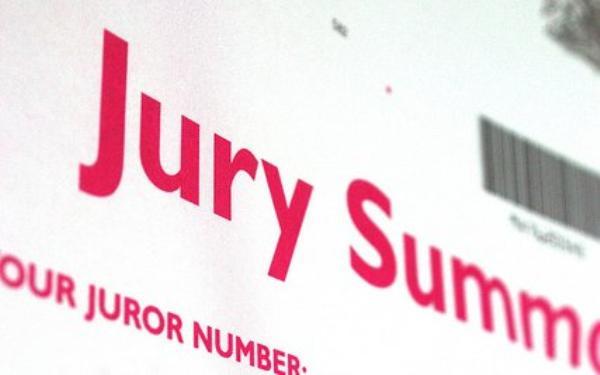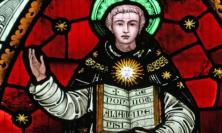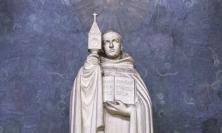There has been widespread condemnation this week of the jury who were unable to reach a verdict in a prominent British court case involving the ex-wife of a former Member of Parliament. But the criticisms of the jurors, who have since been dismissed, are misplaced, argues Joe Egerton. In order to give a verdict they had to answer questions on human action, freedom of the will and the sacramental nature of marriage – no wonder twelve Londoners could not agree.
This week, twelve ordinary Londoners sitting on a jury at Southwark Crown Court were asked to consider whether, when she took former MP Chris Huhne’s speeding points following an incident in March 2003, his then wife, Vicky Pryce had been coerced – that is to say, her ‘will [had been] overborne’ by her husband. After hours of deliberation, the jury sent ten questions to the judge, who reacted with astonishment: ‘I’m in the position that, after well over 30 years in criminal trials, I have never come across this at this stage. Never.’[1] The following day, after the judge had given the jury answers in writing, the jury was still unable to agree.
In common with most reports, the headline in The Times cast doubt on the jury. Reporting the case, the paper’s crime correspondent wrote that some of the questions, ‘showed that they did not understand the basis of trial by jury and simple legal concepts.’ The TaxPayers’ Alliance was reported as calling for every effort to be made in future, ‘to ensure that jurors are capable of delivering a verdict before the trial starts’. The chairman of the House of Commons Home Affairs Committee said, ‘I am genuinely surprised at the questions that were asked by the jury. These came after what must have been quite clear directions given by the judge.’[2]
An examination of the ten questions suggests quite the opposite: the jury had been set an extraordinarily difficult task, an individual’s response to which depends on what he or she believes about the nature of human beings. Rather than demonstrating a ‘fundamental deficit in understanding’, as the judge claimed, at least some of the questions suggest a grasp of the underlying issue that would have done credit to an advanced philosophy seminar. Other questions give an impression of a lack of understanding of what a jury is meant to do, but they may in fact be attempts to ask about equally important difficulties, although they are phrased in a way that obscures the underlying issue.
The actions of the defendant were not in dispute. She had taken points on her driving licence for her then husband. This is a criminal offence. But she offered a defence: this was an example of ‘marital coercion.’ So although she admitted that she had done something that was wrong, she claimed that she should not be punished because Mr Huhne had made her do it.
So the question the jury had to ask, and answer, is a very difficult one: is this true? Was she coerced, or did she make a free choice?
We are immediately thrown into territory which has been contested by philosophers and theologians for 25 centuries. Socrates asked how, if knowledge is the strongest of all things, it is possible to know right and do wrong. This was decades before Aristotle invented the word ‘ethics’ and centuries before we started to use the word ‘moral’ to describe an area of philosophy. This question clearly underpinned the jury’s deliberations and explains why they were asking questions that simply would not arise in most cases.
The question of how we can do something that we know is wrong has defied the greatest of philosophers. Aristotle devoted most of the VIIth book of the Nicomachean Ethics to this question, and produced a complex answer that few commentators regard as satisfactory and some as preposterous: that although (for example) the adulterer knows that adultery is wrong, the desire is so strong that the adulterer fails to recognise that what he or she is doing is adultery. St Augustine proposed another answer: human beings had, he asserted, no knowledge of right and wrong as a result of the Fall. The ability to choose the good was restored by the Incarnation, Passion and Resurrection, and faith in the Trinity was thus necessary to make the right choice. The weakness of this answer is, as St Augustine also recognised, that human beings without any knowledge of the Trinity do make good choices.
St Thomas Aquinas brought together the accounts of Aristotle and St Augustine, and this in turn led to the account offered by St Ignatius of Loyola in his treatment of consolation and desolation: first, that if our reason is functioning well and is not disrupted by aberrant desires, we naturally make good choices; second, that it is only by directing ourselves towards God that our power of reasoning will enable us to keep on making good choices, otherwise we are in danger of drifting from mortal sin to mortal sin. Others – one thinks of twentieth-century philosophers who drew a distinction between description and prescription, following David Hume’s often-quoted argument that one cannot derive an ‘ought’ from an ‘is’ – have offered different answers, including denying the possibility of knowledge of right and wrong altogether.
It is not all that surprising, then, that the jury members found the question they were asked to address difficult. It is entirely possible that one or more of them will have had some acquaintance with Hume’s argument; it may even be the case that at least one juror was familiar with some of the thinking that culminated in St Ignatius’s answer to the Socratic paradox, although this is not to suggest that a jury would have consisted of philosophers – or theologians.
So we do have an unusual situation. London is one of the most diverse cities in the world. Individuals have radically different views of what a human being really is. There are different views of right and wrong, good and evil. Some believe in God; others do not. Some believe – and this is relevant because the fact that Ms Pryce had had an abortion was revealed in the case – that abortion is killing an unborn child with the right to life; others that a woman has a right to choose what happens to her own body. If you ask twelve Londoners whether something that somebody did – accept a drink that was put in front of them, for example – was completely down to the drinker or whether the person who put the drink in front of them bears some degree of responsibility, you will get different answers. If you ask whether taking speeding points for somebody else is always reprehensible, you will get different answers.
The questions that were submitted to the judge certainly do not show that the jury did not understand its function. The first question reads: ‘you have defined the defence of marital coercion... and also explained what does not fall within the definition by way of examples. Please expand upon the definition (specifically “will was overborne”), provide examples of what may fall within the defence, and does this defence require violence or physical threats?’ These are perfectly reasonable questions and the judge appears to have dealt with some of them. The judge’s answer was: ‘The pressure applied by the husband need not involve violence or physical threats. The law requires that a husband was present and coercion was to such an extent that she was impelled to commit an offence because she truly believed she had no real choice but to do so.’ We may note immediately that no examples of what constituted ‘will [being] overborne’ were given.
A student of St Thomas Aquinas who was on the jury might observe that St Thomas would not allow the defence at all: according to St Thomas, we all have free will (that is, we do always choose for ourselves) when we do something. We can of course be the victim of another’s action which we are powerless to prevent; for instance, if somebody puts drugs in a drink. St Thomas would find the judge’s answer unhelpful and possibly incomprehensible – what he would be looking for would be examples of cases in which the law held that, even though an individual had made a choice, they should be let off, because we are all frail and the human law should not punish all offences against the natural law. It is unsurprising that the jury, who were not given actual examples, was puzzled and tried to express its puzzlement to the judge.
The concept of ‘the will’ is itself contentious. Indeed, the existence of the will is a matter of speculation – at least if one understands ‘will’ in the way St Paul or St Augustine did; there is no space for ‘the will’ so conceived in Aristotle’s account of human action. This may well be what lies behind the questions over whether the jury could speculate or consider ‘reasons not given in court’. In most cases, these are excluded because the jury has to decide such questions as, ‘Did he actually stick the knife into the victim?’ or ‘Did she know that there was cocaine inside the lining of her case?’ But to decide whether ‘will was overborne’ necessarily involves starting from some view of what the will is and in what circumstances it could be overborne. Because there are different – and incompatible – accounts of what this might mean, it is highly probable that when twelve individuals discuss this in order to decide a verdict, they will start to bring in arguments not discussed in court. Alasdair MacIntyre wrote a substantial book called Whose Justice? Which Rationality?, that explores contesting accounts of justice and reason. If you ask twelve individuals, ‘do these facts lead you to conclude that the accused stole a car?’, they can indeed rely on the ‘facts’ presented. But if you ask them to decide whether somebody was coerced (with no violence or threat of violence), they are likely to draw in much from their own direct and vicarious experience.
Lastly – and this should cause those who think legislating over the nature of marriage is the action of a sane Parliament to think again – the jury asked, ‘Would religious conviction be a good enough reason for a wife feeling she had no choice, ie she promised to obey her husband in her wedding vows and he had ordered her to do something and she felt she had to obey?’ This seems to me a question about the nature of marriage: is it just a matter of money and of responsibility for children; or is it something else, a commitment made in the presence of God? And what is the effect of swearing to obey? We are once more in a contested area: twelve Londoners will very probably have different views on what marriage is. The judge’s response was that the defendant had not given her marriage vows or religious beliefs as a defence, so this was irrelevant. But the nature of marriage is an issue – a juror who thought that it entailed a wife obeying a husband might well conclude that the defendant was coerced; a juror who thought marriage was more about sharing material goods and responsibility for children (essentially Hume’s view) would probably say she was not. A juror who took the view of Robert Parsons SJ, that the mother had the high duty of ensuring that a Catholic family lived a Catholic life, would approach the question differently again. Ask twelve Londoners what the essence of marriage is and you will get at least as many answers.
This jury was set a near impossible task. Many of the criticisms directed at them fail to appreciate that if you ask twelve individuals to address deep questions on the nature of human action, you will get a number of different, and incommensurate, answers. It is a matter of chance that this jury had the ability to set some of their concerns out clearly and crisply, and their concerns should be taken seriously.
Joe Egerton works in the City as Chief Operating Officer of a stockbroker specialising in shares of medium-sized firms. He has lectured at the Mount Street Jesuit Centre.






